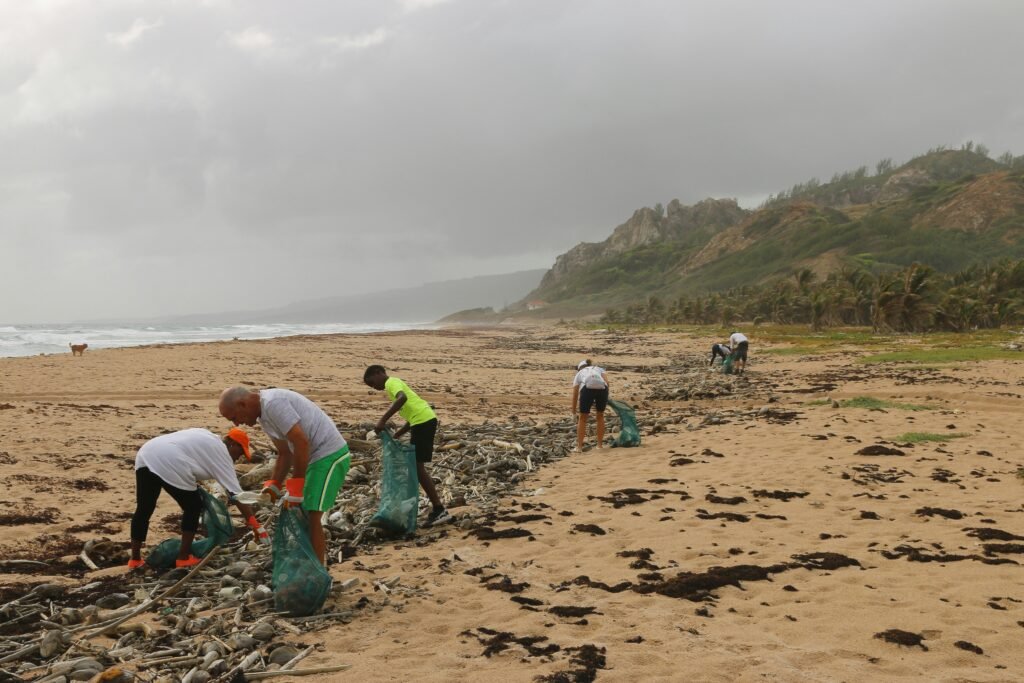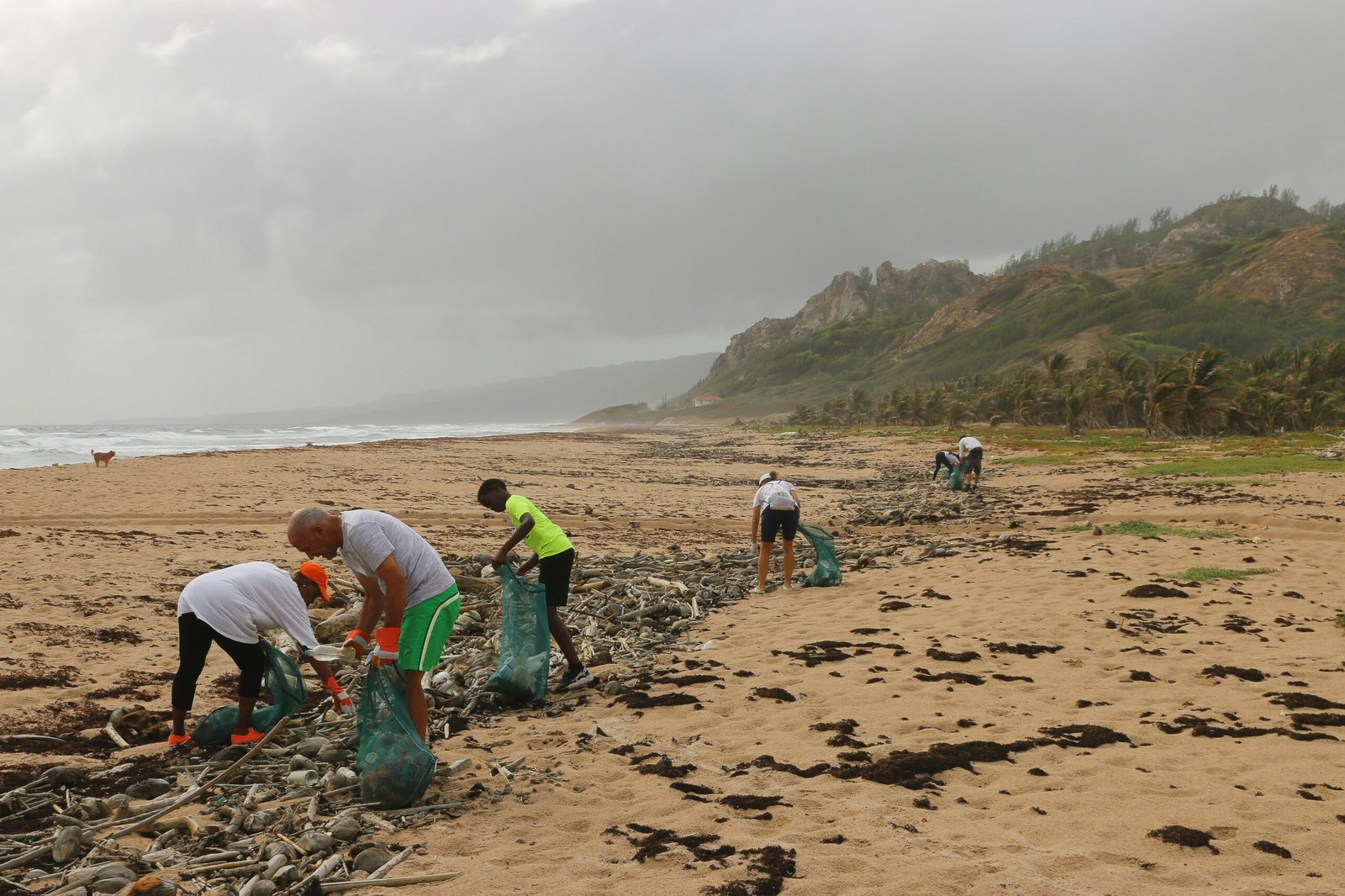Volunteer work is often seen as a noble endeavor that benefits communities and those in need. However, its impact extends far beyond altruism. Engaging in volunteer work can significantly enhance career development, offering opportunities for skill-building, networking, and personal growth.

The Multifaceted Benefits of Volunteer Work
Volunteer work offers a plethora of benefits that can contribute to professional growth and career advancement. Here are some of the key advantages:
- Skill Development
Volunteering provides a platform to develop and refine both hard and soft skills. Whether it’s project management, teamwork, communication, or problem-solving, volunteer activities often require a diverse skill set that can be transferred to the workplace.
- Project Management: Leading a volunteer project helps in honing leadership and organizational skills.
- Communication: Interacting with different groups and stakeholders improves interpersonal and communication abilities.
- Problem-Solving: Addressing challenges in volunteer projects enhances critical thinking and problem-solving skills.
Oprah Winfrey, a renowned philanthropist and media mogul, once said, “The greatest discovery of all time is that a person can change his future by merely changing his attitude.” Volunteering fosters a positive attitude and a proactive approach, which are invaluable in any career.
- Networking Opportunities
Volunteering connects you with a diverse group of people, including other volunteers, organizational leaders, and community members. These connections can open doors to new opportunities, mentorship, and potential job offers.
- Expanding Your Network: Volunteering expands your professional network, providing opportunities to meet people from different industries and backgrounds.
- Mentorship: Many experienced professionals volunteer their time and can offer guidance and mentorship to younger volunteers.
Sheryl Sandberg, COO of Facebook and author of “Lean In,” emphasizes the importance of networking: “If you’re offered a seat on a rocket ship, don’t ask what seat! Just get on.” Volunteering can be that rocket ship that propels your career forward through valuable connections.
Volunteer work can strengthen your resume by showcasing your commitment to community service, willingness to take initiative, and ability to balance multiple responsibilities.
- Demonstrating Commitment: Regular volunteer work shows potential employers that you are dedicated and reliable.
- Showcasing Skills: Highlighting volunteer experience on your resume provides concrete examples of your skills and achievements.
Emma Watson, actress and UN Women Goodwill Ambassador, underscores the value of volunteer work: “If not me, who? If not now, when?” Including volunteer work on your resume reflects your proactive nature and sense of responsibility.
- Exploring New Career Paths
Volunteering allows you to explore different fields and industries, helping you identify new career interests and opportunities.
- Gaining Exposure: Volunteering in various roles and organizations exposes you to different career paths and industries.
- Testing New Roles: It provides a risk-free environment to test new roles and responsibilities without the pressure of a paid job.
Muhammad Ali, legendary boxer and philanthropist, captured the essence of exploration: “Service to others is the rent you pay for your room here on Earth.” Volunteering offers a chance to serve while discovering new passions and career possibilities.
- Building Confidence and Self-Esteem
Engaging in volunteer work can boost your confidence and self-esteem, making you more assertive and self-assured in your professional life.
- Achieving Goals: Successfully completing volunteer projects enhances your confidence in your abilities.
- Positive Feedback: Recognition and appreciation from those you help and work with can improve your self-esteem.
Beyoncé, global music icon and philanthropist, highlights the power of self-belief: “I don’t like to gamble, but if there’s one thing I’m willing to bet on, it’s myself.” Volunteering helps you build the confidence to bet on yourself in your career.
Many volunteer opportunities involve leading teams, organizing events, or managing projects, all of which are essential for developing leadership skills.
- Leading Teams: Taking on leadership roles in volunteer projects enhances your ability to lead and motivate others.
- Decision-Making: Making strategic decisions in volunteer work strengthens your decision-making skills.
John C. Maxwell, a renowned leadership expert, asserts, “A leader is one who knows the way, goes the way, and shows the way.” Volunteer work provides the perfect platform to develop and demonstrate leadership capabilities.
Practical Tips for Leveraging Volunteer Work for Career Development
- Choose Relevant Volunteer Opportunities
Select volunteer opportunities that align with your career goals and interests. This ensures that the skills and experience you gain are relevant and beneficial to your professional development.
- Align with Career Goals: Look for volunteer roles that offer experience in areas you want to develop.
- Industry-Specific Opportunities: Consider volunteering in organizations related to your industry to gain relevant exposure.
- Commit to Long-Term Engagement
Long-term volunteer engagements are more impactful and provide deeper learning experiences than short-term stints.
- Consistency: Regular participation demonstrates commitment and allows you to build stronger relationships.
- In-Depth Experience: Long-term involvement offers more substantial and meaningful experiences.
- Highlight Volunteer Experience on Your Resume
Ensure that your volunteer work is prominently featured on your resume, especially if it is relevant to the job you are applying for.
- Resume Section: Create a dedicated section for volunteer work on your resume.
- Detailed Descriptions: Provide detailed descriptions of your volunteer roles, responsibilities, and achievements.
- Leverage Volunteer Work in Interviews
Discuss your volunteer experiences in job interviews to demonstrate your skills, commitment, and values.
- STAR Method: Use the Situation, Task, Action, Result (STAR) method to describe your volunteer experiences and achievements.
- Relate to Job Requirements: Connect your volunteer work to the skills and qualities required for the job you are applying for.
- Network with Fellow Volunteers and Leaders
Build relationships with fellow volunteers and organizational leaders to expand your professional network.
- Stay Connected: Maintain connections with people you meet through volunteering via LinkedIn or other professional networks.
- Seek Mentorship: Approach experienced professionals for mentorship and guidance.
- Seek Leadership Roles in Volunteer Organizations
Take on leadership roles in volunteer organizations to develop and demonstrate your leadership skills.
- Lead Projects: Volunteer to lead projects or teams within the organization.
- Organize Events: Take the initiative to organize events, fundraisers, or campaigns.
- Reflect on Your Experiences
Regularly reflect on your volunteer experiences to identify the skills and insights you have gained and how they can be applied to your career.
- Journaling: Keep a journal of your volunteer activities, achievements, and learning experiences.
- Self-Assessment: Conduct self-assessments to evaluate your growth and development through volunteering.
- Share Your Volunteer Work on Social Media
Use social media to share your volunteer experiences and highlight your commitment to community service.
- LinkedIn Updates: Post updates about your volunteer work on LinkedIn to showcase your involvement and dedication.
- Blogging: Write blog posts about your volunteer experiences and the impact of your work.
- Incorporate Volunteer Work into Your Personal Brand
Integrate your volunteer work into your personal brand to reflect your values and commitment to making a positive impact.
- Personal Branding Statement: Include your volunteer experiences in your personal branding statement.
- Professional Bio: Highlight your volunteer work in your professional bio on LinkedIn and other platforms.
Inspirational Quotes on the Impact of Volunteer Work
Princess Diana, known for her humanitarian efforts, once said, “Carry out a random act of kindness, with no expectation of reward, safe in the knowledge that one day, someone might do the same for you.” This quote emphasizes the selfless nature of volunteering and its ripple effect on the world.
Albert Einstein, the theoretical physicist, and Nobel laureate, stated, “Only a life lived for others is a life worthwhile.” His words remind us that volunteer work enriches not just the lives of those we help, but also our own lives, giving us a deeper sense of purpose.
Nelson Mandela, the revered South African leader, believed, “What counts in life is not the mere fact that we have lived. It is what difference we have made to the lives of others that will determine the significance of the life we lead.” Volunteering allows us to make a meaningful difference and leaves a lasting legacy.
Conclusion
Volunteer work plays a crucial role in career development, offering opportunities to develop skills, expand networks, explore new career paths, and build confidence. By choosing relevant volunteer opportunities, committing to long-term engagements, highlighting your experiences on your resume, leveraging them in interviews, and seeking leadership roles, you can maximize the benefits of volunteering for your professional growth.
As the inspirational quotes from notable figures like Oprah Winfrey, Sheryl Sandberg, Emma Watson, Beyoncé, John C. Maxwell, Princess Diana, Albert Einstein, and Nelson Mandela illustrate, volunteering is not only about giving back to the community but also about enriching your own life and career. Embrace volunteer work as a powerful tool for career development and personal fulfillment, and watch as it opens doors to new opportunities and transforms your professional journey.





